Zereshk Polo is a traditional Persian rice dish made with barberries (zereshk), which are small, tart red berries. This dish is known for its striking combination of sweet and sour flavors, as the tartness of the barberries contrasts beautifully with the richness of the saffron-infused rice. It’s typically served with chicken (usually braised or roasted),...
Learn moreTahdig is a beloved Persian dish known for its crispy, golden, and crunchy bottom layer of rice, which is considered the highlight of Persian rice cooking. The word “Tahdig” literally means “bottom of the pot,” and it refers to the crispy, slightly caramelized crust that forms at the base of the pot when cooking rice. Key...
Learn moreTahchin is a delicious and flavorful Persian rice dish made with layers of rice, yogurt, saffron, and typically chicken or lamb, baked to perfection. It has a unique, crispy golden crust on the bottom, known as tahdig, and is a beloved comfort food in Iranian cuisine. Key Ingredients: Rice: Typically Basmati rice, known for its long...
Learn moreSabzi Polo is a fragrant and flavorful Persian rice dish mixed with a variety of fresh herbs. It is a beloved dish in Iran, often served during special occasions, particularly Nowruz (Persian New Year), as it symbolizes renewal and abundance due to its vibrant green color. Key Ingredients: Rice: Long-grain rice, typically Basmati, is used...
Learn moreMosama Khoresht is a classic Persian stew, known for its rich, sweet, and tangy flavors. The dish often features eggplants or okra, meat (usually chicken or lamb), and a tomato-based sauce flavored with pomegranate molasses or sometimes dried limes. Key Ingredients: Main Protein: Chicken, lamb, or beef. Vegetables: Eggplant (traditionally fried or roasted) or sometimes...
Learn moreMirza Ghasemi is a flavorful and smoky Persian dish from the northern region of Iran, specifically Gilan province. It’s a vegetarian (and often vegan) dish made primarily from roasted eggplants, tomatoes, and garlic. It is beloved for its robust smoky flavor and rich texture. Key Ingredients: Eggplants: Typically roasted or charred to achieve a smoky...
Learn moreKuku Sabzi is a delicious and aromatic Persian herb frittata, packed with fresh herbs, eggs, and spices. It’s a staple in Persian cuisine, often enjoyed as a light meal, appetizer, or side dish, especially during festive occasions like Nowruz (the Persian New Year). Key Features: Main Ingredients: Fresh herbs: Parsley, cilantro, dill, and chives (or...
Learn moreKhoresht Gheimeh is a popular Persian (Iranian) stew, rich in flavor and tradition. The name “Khoresht” means “stew” in Persian, and “Gheimeh” refers to the small, cubed meat used in the dish. It’s a comforting and flavorful dish that’s loved across Iran. Key Ingredients: Meat: Usually lamb or beef, cut into small cubes. Split Yellow...
Learn moreKhoresht Bademjan is a beloved Persian eggplant stew, combining tender eggplants with a rich, flavorful tomato-based sauce. It is typically made with either lamb or beef and often includes tangy dried lime (limoo amani), which adds a distinctive sourness to the dish. This stew is a staple in Persian households, admired for its depth of...
Learn moreKebab Koobideh is one of the most popular and iconic Persian dishes, made from minced meat that is skillfully seasoned and grilled on long, flat skewers. It’s a cornerstone of Persian cuisine, cherished for its simplicity, flavor, and tenderness. The name “Koobideh” comes from the Persian word koobidan, which means “to pound,” referring to the preparation...
Learn more
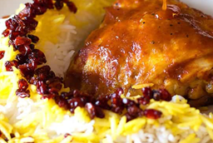
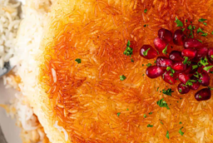
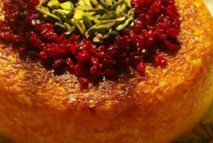
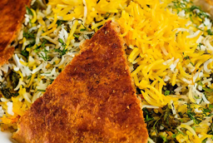
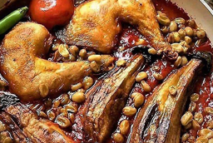
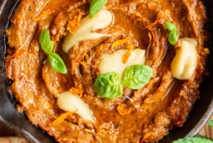
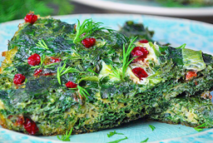
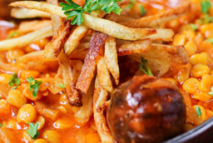
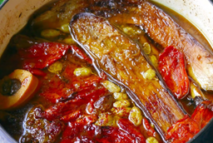
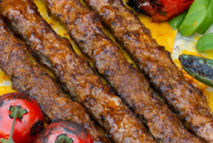
Login with